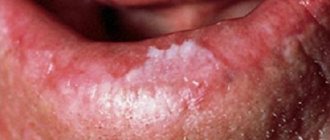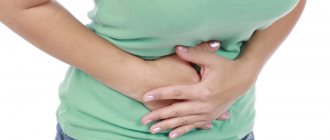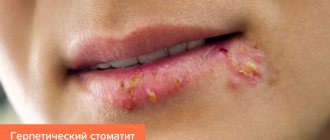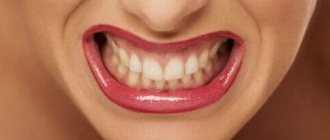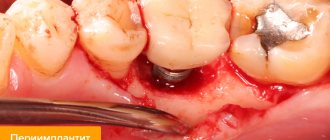Dry mouth is familiar to every person. This sensation occurs when thirsty, after eating salty foods, or while staying in a room with low air humidity. However, xerostomia can be a symptom of a dangerous disease, a sign of which is a disruption of the salivary glands. Let's consider the causes of pathology, methods of treatment and prevention.
The role of salivary fluid in the body
Normally, the body produces up to two liters of saliva per day. It is necessary for:
- the initial process of food digestion;
- moisturizing the mucous membrane;
- cleansing the oral cavity from food debris;
- disinfection of the oral cavity.
The process of breaking down food begins not in the stomach, but in the oral cavity. Saliva moistens the food bolus and takes over partial food processing. After eating, saliva cleanses the oral cavity of food particles, disinfects the oral cavity with antibacterial components, softens and moisturizes the mucous membrane.
Violation of the process of saliva production is accompanied by a feeling of dryness of the tongue, the inside of the cheeks, and the palate. The absence of salivary fluid in the oral cavity gives pathogenic agents a chance to actively reproduce. Drying of the mucous membranes of the oral and nasal cavities leads to frequent colds and a decrease in the immune status of the body.
How to make the correct diagnosis?
The rate of salivation stimulated during eating is normally 1.5-2.0 ml/min, while the rate of unstimulated saliva is approximately 0.3-0.4 ml/min. The term “hyposalivation” means a decrease in the functional activity of the salivary glands. This diagnosis is made when the rate of stimulated salivation is less than 0.5-0.7 ml/min, and the rate of unstimulated salivation is less than 0.1 ml/min (24stoma.ru).
The diagnosis of “xerostomia” in patients with hyposalivation is made when the volume of saliva secreted becomes less than the rate of fluid absorption through the oral mucosa + the rate of evaporation of fluid in the mouth (during talking or breathing).
Where to go - you will need to contact a dental surgeon, who will have to check the functioning of the salivary glands (massage them and see if saliva is released from the ducts, and in what quantity). The examination will also reveal the presence of stones in the ducts of the salivary glands, which may impede the secretion of saliva. Assessing the transparency of secreted saliva can indicate the presence or absence of possible infectious inflammation in the tissues of the salivary glands.
It is best to seek such advice from maxillofacial surgeons from a hospital, and not from outpatient dental surgeons from a clinic, because the latter clearly do not have enough experience to treat such pathology. In addition, if a stone is found in the duct or inflammation of the tissue of the salivary glands, the maxillofacial surgeon will be able to carry out treatment more effectively.
As we said above, it is best to immediately contact clinics at a medical university where there is a department of surgical dentistry. There, receptions and consultations are conducted by associate professors and professors, they teach dental students, do scientific work, and therefore all complex cases with xerostomia go there. Well, if you live in Moscow or the Moscow region, you can still contact the state clinic TsNIIS (Central Research Institute of Dentistry).
Why is xerostomia dangerous?
Chronic dry mouth can cause the development of:
- multiple caries;
- gum disease, tooth loss;
- oral candidiasis;
- pathologies of the salivary glands;
- bad breath;
- taste disturbances;
- problems with installing braces/prostheses.
Xerostomia disrupts the natural balance of the microflora of the oral cavity with all that it entails. Impaired taste is not just a minor side effect: a person cannot control their sugar/salt intake, which leads to rapid weight gain.
Prevention of caries and candidiasis –
It is very important! Lack of saliva stimulates the growth of microbial plaque, so patients with xerostomia in the oral cavity, as a rule, always have soft microbial plaque and hard dental deposits. This creates the preconditions for the development of multiple caries, gum inflammation, and oral candidiasis (oral thrush). Moreover, in patients with xerostomia, these diseases arise much faster than in patients without xerostomia, and also always have a more unfavorable course.
To prevent this, proper oral hygiene is necessary, which must be carried out after every meal. In this case, you need to use not only a toothbrush and toothpaste, but also dental floss. It is very important to avoid snacks between meals (chips, candies, cookies), and also avoid sweet carbonated drinks and sugar-containing juices. Watch the video for the correct technique for using dental floss and brushing.
How to use dental floss and toothbrush correctly -
→ Detailed hygiene rules and teeth brushing techniques
Important: we have already said several times above that it is very important to protect the mucous membrane with the help of a complex of lactic enzymes and lysozyme (a salivary enzyme that has an antibacterial effect). These substances increase local immunity of the mucous membrane. This will protect you from oral candidiasis, stomatitis and other diseases of the oral mucosa.
Causes of dry mucous membranes
Causes of dryness:
- dehydration;
- smoking;
- stress;
- mouth breathing;
- hormonal changes;
- taking medications;
- eating habits;
- oncology treatment;
- pathology of the salivary glands.
Symptoms of dehydration often occur during the hot season, when the body suffers from a lack of moisture. The same thing happens with diseases accompanied by high fever and during sports training. Dehydration occurs after diarrhea and vomiting, so doctors recommend restoring the consumed fluid and salt balance by drinking still mineral water.
Smoking negatively affects the condition of the mucous membranes, changes the composition of saliva, and provokes various diseases of the oral cavity. The most important thing is a decrease in the production of salivary fluid by the glands.
During stress, the hormone adrenaline is actively released into the blood, which provokes a sharp drying of the mucous membranes of the mouth.
Breathing through the mouth with a stuffy nose or as a result of a bad habit also provokes drying of the mucous membrane due to the entry of air masses into the oral cavity instead of the nose.
Hormonal changes mainly worry women during the premenopausal and postmenopausal periods. This will pass with time.
Long-term use of certain medications can also cause dry mucous membranes. This side effect should be written in the instructions for the medicine.
Drying of the mucous membrane often accompanies the consumption of the following products:
- coffee;
- chocolate;
- sweets;
- smoked meats;
- marinades.
Sometimes the mucous membrane dries out due to flavoring additives in semi-finished products.
Intensive treatment of cancer is also accompanied by dry mouth, as the functioning of the salivary glands is disrupted.
Oral trauma is another cause of impaired saliva production.
Pregnancy
Xerostomia is often observed in women during pregnancy; this is due to a violation of the hormonal and mineral balance in the body. If tests show a lack of potassium, the gynecologist will prescribe appropriate medications. Also, during pregnancy, a woman sweats more and goes to the toilet more often, which provokes dehydration. Therefore, pregnant women are recommended to observe the drinking regime with more attention than others.
Sometimes pregnant women complain of a metallic taste in the mouth along with dryness. This is a symptom of “pregnant diabetes”, which develops against the background of reduced immunity. This pathology requires serious medical intervention.
Effect of food additives –
As a doctor, I don't have much faith in nutritional supplements. However, there are reputable clinical studies that confirm the positive effects of Omega-3, vitamin E, and wheat germ oil on dry mouth in Sjögren's disease. Clinical study - Singh M, Stark PC, Palmer CA, Gilbard JP, Papas AS (published in the professional medical journal Spec Care Dentist, 2010).
By the way, in patients who received psychotropic drugs (tricyclic antidepressants or antipsychotics) and suffered from xerostomia, the drug Yohimbine, also a dietary supplement, showed good results in stimulating salivation. This effect has also been confirmed in studies.
Possible diseases
List of diseases accompanied by dry mouth:
- Sjögren's syndrome;
- gastrointestinal pathologies;
- arterial hypotension;
- mumps;
- sialadenitis;
- infection;
- diabetes.
Sjögren's syndrome is an autoimmune disease common in postmenopausal women. With this pathology, agents of the immune system begin to attack the body’s own tissues, mistaking them for pathogens. The salivary and lacrimal glands suffer. Women experience dry mouth and burning eyes due to insufficient production of tear fluid.
Gastrointestinal pathologies are serious diseases of the body. Since the tongue and saliva belong to the digestive system, their pathological condition is transmitted to all organs of the gastrointestinal tract.
If xerostomia is accompanied by a yellow coating on the tongue, it is probably a disease of the liver and gallbladder. If these symptoms are accompanied by pain in the right side, this may be a symptom of cholelithiasis.
Nausea and dryness are a sign of gastritis. Pain in the left side along with diarrhea and dry mouth is a symptom of pancreatitis. However, for accurate diagnosis, you need to go to the clinic.
Arterial hypotension is a chronic loss of strength, weakness, and dizziness. To restore tone, special therapy is needed.
Sialadenitis
Inflammation of the salivary glands is one of the many causes of pathology. With mumps, the parotid gland becomes inflamed, with sialadenitis - any other salivary gland. Sialadenitis can be an independent disease or a symptom of another pathology - infectious. Non-infectious sialadenitis develops as a result of poisoning with salts of heavy metals: for example, you can be poisoned by mushrooms.
With inflammation, the patient feels lumbago in the ear and pain when swallowing. The pathological condition is also accompanied by a decrease in the amount of saliva produced and a feeling of dry mouth. When you touch the neck, you feel a swelling in the projection of the salivary glands.
Treatment is prescribed by the doctor: antiviral drugs or antibiotics, physiotherapy, massage.
Infectious diseases
The onset of influenza or acute respiratory viral infection is accompanied by an increase in body temperature and profuse sweating, and therefore dehydration. The result is the appearance of symptoms of xerostomia. To get rid of the feeling of dryness, you need to replenish the loss of fluid in the body. This could be tea with lemon, still mineral water, or just water at room temperature.
Endocrine diseases
They are associated with a malfunction in the hormonal system, which is sometimes accompanied by symptoms of xerostomia. In diabetes mellitus, rapid dehydration of the body occurs at the cellular level, and this disease is also accompanied by frequent urination. Long-term use of medications aggravates the patient's pathological condition. To get rid of xerostomia, you need to control the level of glucose in the blood with the help of herbal decoctions and timely administration of insulin.
Treatment: general approach and medications
Keep in mind! Treatment is carried out taking into account the established cause of the symptom and the individual characteristics of the patient’s body.
To eliminate dry mouth and lips caused by an unhealthy lifestyle or insufficient air humidity, it is recommended :
- Drink 1.5-2 liters of clean water daily .
- Use a humidifier to maintain humidity levels.
- Avoid strong alcoholic drinks.
- Replace coffee with green tea or freshly squeezed fruit juices.
- Gradually reduce the number of cigarettes smoked per day .
- Control your breathing and breathe through your nose, not your mouth.
- Apply nourishing and moisturizing balms to your lips.
- Try not to lick or bite your lips.
- Maintain oral hygiene.
- Before purchasing toothpaste, carefully study its composition.
- Lead an active and healthy lifestyle.
- Reduce consumption of fatty, fried, salty and spicy foods .
- Supplement your diet with fruits, vegetables and herbs.
- Use chewing gum to moisten your mouth.
- Rinse your mouth with lemon water or herbal infusion.
- Use special moisturizing sprays - saliva substitutes.
To eliminate dryness caused by the development of pathological processes in the body, it is first necessary to accurately establish the root cause that provoked the appearance of unpleasant symptoms.
Only after this can you start taking medications prescribed by your doctor.
Stay up to date! After the diagnosis, the doctor may prescribe:
- “ Maalox ” is a suspension to reduce the effect of damaging factors on the mucous membrane of the stomach and esophagus. The medicine has an enveloping and adsorbing effect.
- " Ermital " is an enzyme preparation in capsule form containing standard highly active pancreatin. The drug replenishes the deficiency of pancreatic enzymes and eliminates the symptomatic manifestations of digestive disorders.
- Azathioprine form indicated for the treatment of rheumatoid arthritis.
- "Diabeton " is a highly effective remedy that is used for insulin-dependent diabetes mellitus.
It is prohibited to prescribe medications or adjust the dosage on your own.
Diagnostics
To identify the true cause of the patient’s pathological condition, the doctor asks in detail about all manifestations of xerostomia. After this, laboratory and instrumental tests are prescribed. Laboratory tests include the well-known collection of blood and saliva and urine collection. A detailed examination will also be required:
- MRI;
- CT;
- Ultrasound;
- salivary gland biopsy;
- sialometry;
- cytological examination;
- other studies.
A blood test can help determine whether a patient has diabetes or an autoimmune disease. A urine test confirms/refuses the presence of inflammatory foci in the body.
Computed tomography (CT) reveals the presence/absence of neoplasms of various natures. An ultrasound can show tumors, cysts, or stones in the salivary glands.
A study of the composition of saliva reveals the presence of enzymes, macro- and microelements, and immunoglobulins. Sialometry allows you to clarify the rate of formation of salivary fluid and the presence of pathologies.
Associated symptoms
Symptoms accompanying xerostomia help clarify the diagnosis of the disease.
| Symptoms accompanying dryness | Pathology |
| Bitterness in the mouth | Dehydration, alcohol and tobacco consumption, liver pathologies. |
| Numbness and burning of the tip of the tongue | Stress, Sjögren's syndrome, taking certain medications. |
| Dizziness | Low blood pressure, vegetative-vascular dystonia. |
| After meal | Pathology of the salivary glands, insufficient fluid production. |
| After sleep | Mouth breathing during sleep or a sign of the development of diabetes. |
| At night time | Metabolic disorders, insufficient air humidity in the room, late heavy dinner. |
| Nausea | Concussion, body intoxication, low blood sugar. |
| Little saliva, frequent urination | A sign of diabetes. |
Associated symptoms help to make a correct diagnosis, so when you see a doctor, you should describe your condition in as much detail as possible. Just mentioning xerostomia is not enough.
Treatment of dry mouth –
Primary treatment should be aimed at eliminating the cause of dry mouth. For example, if the cause is inflammation of the salivary glands or a stone in the duct of the salivary gland, you need to contact a dental surgeon and treat the inflammation and remove the stone from the duct. If you have mouth breathing, you need to contact an ENT doctor and treat nasal diseases. If you use rinses with alcohol, you must stop using them. But these are all fairly simple cases, the cause of which is easily diagnosed and quite easily eliminated.
In complex cases, such as Sjögren's syndrome or after radiation therapy to the head and neck area, it is important to choose the right treatment strategy. In these conditions, the correct option would be to prescribe drugs to stimulate the function of the large salivary glands. However, such remedies only work when the parenchyma of the salivary glands (glandular tissue that secretes saliva) is at least partially preserved. If, as a result of an infectious or autoimmune process, sclerosis of the parenchyma occurs, then there is simply nothing to stimulate there.
In these cases, you can only try to stimulate the function of the small salivary glands with physostigmine + prescribe artificial saliva substitutes in the form of gels and rinses (we will discuss this below). If xerostomia occurs as a result of taking medications, the best treatment results are observed after prescribing local salivary stimulants in the form of an oral spray with malic acid + adjusting the dose of the drug or replacing it with another.
Treatment of xerostomia consists of -
- stimulation of the function of the salivary glands,
- artificial moistening of the mucous membrane,
- nutritional supplements,
- prevention of caries, gum inflammation, oral candidiasis.
Home remedies for dryness
These aids are not therapeutic measures; they can only temporarily eliminate symptoms. If xerostomia is a symptom of diabetes, it cannot be cured with home-grown remedies.
Ginger
For dry mouth, chewing a piece of ginger or drinking ginger tea (a couple of cups a day) will help. Ginger stimulates the production of gastric juice and salivary glands.
- piece of ginger 3-4 cm;
- a spoonful of honey;
- a cup of boiling water.
Peel a piece of fresh ginger, chop finely and boil in water (boil). Let the broth brew, strain, add honey and drink.
Green tea
Green tea leaves are collected from the same bush as black ones. They differ from black ones in weak fermentation. The properties of green tea to prevent xerostomia have been known for a long time: it stimulates the secretion of saliva. They also contain antibacterial substances that destroy pathogens.
- 1 tsp tea;
- a cup of boiling water;
- a spoonful of honey.
Brew tea, strain, add honey. Drink the drink fresh. Repeat 2-3 times a day.
Aloe vera
This is a plant related to agave, which is often used in cosmetology to rejuvenate and relieve skin irritation. In this case, the juice of this plant stimulates salivation.
- juice of one leaf;
- cotton pads.
Squeeze the juice from the leaf, dilute it with a little water and rinse your mouth. Can be taken orally. You can also lubricate the gums with juice (gel) using cotton pads (sticks), rinse off after a few minutes. Do it in the morning, in the evening. Can be duplicated at lunch.
A pineapple
The juice of this tropical plant benefits the body. You will need any pineapples - fresh, canned unsweetened. Just keep the pineapple slice in your mouth for as long as possible. But remember that fruit acid dissolves tooth enamel, so don't overdo it. Alternate chewing pineapple with green tea and aloe vera.
Lemon
When you remember this citrus fruit, your mouth instantly fills with saliva. To make a useful remedy, you need to squeeze the juice from half a lemon and dilute it with a glass of boiled water. This product is stored in the refrigerator and consumed as needed. But remember that acid eats away tooth enamel, so use the product with great care.
Orange
All citrus fruits perfectly stimulate the production of saliva in sufficient quantities.
- medium orange;
- a glass of boiled water.
Squeeze the juice from the orange, mix with water, and store in the refrigerator. One drink a day is enough, because frequent drinking will damage the enamel on your teeth. It is forbidden to drink concentrated juice: the concentrate will worsen the condition of the mucous membrane.
Fennel
This useful plant (pharmaceutical dill) is rich in flavonoids, which stimulate the glands and disinfect the oral cavity. Chew fennel seeds (1 tsp) after each snack. They not only stimulate salivation, but also freshen breath. The seeds can be swallowed or removed from the mouth.
Anise
The seeds of this plant have many beneficial properties, stimulate the secretion of gastric juice and saliva, disinfect and refresh the oral cavity. Anise is chewed after meals, like fennel. You can combine these seeds together if you wish. Unlike citrus fruits, they do not dissolve tooth enamel. But there is a limitation: if you are allergic to these plants.
Rosemary
Rosemary seeds are included in culinary mixtures. This plant affects the entire gastrointestinal tract, has antibacterial properties, has a calming effect on mucous membranes and eliminates irritation. Rosemary is brewed with hot water and left overnight. The infusion is filtered and used as a rinse or bath for the gums. A morning rinse is enough.
Celery
This garden plant contains flavonoids, enzymes, and vitamin C. But for the prevention of xerostomia, its ability to retain water and stimulate salivation is important. The use of celery is simple - chew pieces of this plant throughout the day until a stable result appears.
Parsley
This plant is a natural deodorant that freshens breath and disinfects the oral cavity. You just need to chew the green leaves after every meal. There will be no harm from parsley, only benefit. However, it is better for pregnant women not to abuse this plant, as it has abortifacient properties.
Olive oil
It has little antioxidant properties, cleanses the mucous membrane, moisturizes and maintains moisture levels. Every morning before brushing your teeth, you need to hold 1 tbsp of oil in your mouth for 10-15 minutes, then spit it out. The oily consistency cleanses the oral cavity of microbes, pathogens, and hazardous substances. After this cleansing procedure, you can brush your teeth as usual.
Coconut oil
This oil has a similar effect to olive oil. They can be alternated. Immediately after sleep, take 1 tbsp of oil in your mouth and hold it for at least 10 minutes, then spit. After this, you can brush your teeth as usual. Coconut oil not only disinfects, but also moisturizes mucous membranes and freshens breath.
Fish fat
This remedy is taken internally. It has been proven by scientific experiments that regular consumption of 500 mg of fat (dose for adults) prevents dry mucous membranes, has a beneficial effect on the immune system, improves digestion, eliminates inflammatory processes, and reduces the risk of developing xerostomia. Instead of fish oil, you can eat tuna or salmon dishes.
Essential oils
Let's consider the use of essential oils to improve the health of the oral mucosa. You need to buy a natural product, not a cosmetic one. We need oil:
- peppermint;
- spearmint;
- carnations;
- eucalyptus.
Peppermint stimulates salivation, disinfects mucous membranes, and freshens breath. You need to drop a couple of drops of oil on your tongue, then distribute the aromatic substance throughout your mouth using your tongue. The effect is almost instantaneous.
Spearmint is used for rinsing and while brushing teeth. Place a couple of drops on your toothpaste and brush your teeth with this product every morning. You can rinse your mouth with a solution of two drops of mint and a glass of water. Do this regularly after brushing your teeth. You can rinse your teeth with this solution after every meal. Spearmint is included in some toothpastes and oral products. It contains antibacterial components that cleanse the mucous membrane of germs.
Clove oil is used after every snack. Just drop a couple of drops on your tongue and spread over the mucous membrane. Clove oil is a natural antiseptic; it disinfects and refreshes the oral cavity well. The only obstacle to use is an allergy to cloves.
Eucalyptus oil is a storehouse of beneficial properties for the human body. It heals, disinfects, refreshes, and moisturizes the mucous membrane. Also, the use of eucalyptus is an excellent prevention of colds. Eucalyptus essential oil is used as in previous recipes: drop a couple of drops on the tongue and distribute throughout the mouth. Use after every snack.
Apple vinegar
This substance has long been used in folk medicine to treat various diseases. Dissolve a teaspoon of vinegar in warm water and rinse your mouth after eating. Do this constantly until the pathology disappears. However, it is advisable to leave the habit of rinsing your mouth with vinegar solution after eating forever.
Petrolatum
Pharmacy Vaseline helps moisturize the mucous membrane and retain moisture for a long time. This procedure is carried out before bed after brushing your teeth. Distribute the substance throughout the mouth and lips. Vaseline also treats wounds on the mucous membrane - from bites, rubbing with braces or dentures.
Yogurt
Natural yogurt without dyes, additives or sugar works the same way as Vaseline. Lubricate your mouth with yogurt after every meal (rinse your mouth, lubricate your gums, tongue, palate, inner surface of your cheeks with yogurt). Yogurt restores the microflora of the oral cavity and eliminates pathogens.
Cayenne pepper
This hot spice has an anti-inflammatory effect, thoroughly cleanses the oral cavity, disinfects, stimulates salivation, and moisturizes. Wet the tip of your finger, put a pinch of pepper on it, spread it over the surface of your tongue, and rinse your mouth. Repeat the procedure after meals. Contraindications: gastritis, stomach ulcer. You need to consult a gastroenterologist.
Elm bark
You need to buy slippery elm bark at the pharmacy, turn it into powder, mix half a teaspoon of powder with water and lubricate your gums. This is done with a finger or a cotton swab - whichever is more convenient. After this, the mouth is rinsed. They also make an infusion from the bark powder and drink it like tea. Powder from the bark of this plant envelops the walls of the stomach and mucous membranes. It is used for inflammation of the gastrointestinal tract, as well as to combat dryness and prevent xerostomia. Apply 2-3 times a day.
Drug stimulation of salivation –
Systemic stimulation of salivary flow can be achieved using 2 approved drugs. The first drug is Pilocarpine, which is an alkaloid of plant origin. This drug also has the property of stimulating the function of the salivary glands. Depending on the severity of the disease, pilocarpine can be prescribed 3 or 4 times a day, 3 or 5 mg, for at least 3 months.
The second drug is Cevimeline Hydrochloride. This is a cholinergic drug that has a dosage regimen of 30 mg 3 times a day - also for at least 3 months. However, most clinicians still prefer pilocarpine, both for Sjögren's disease and after radiation therapy. But these drugs will be effective only if the parenchyma of the salivary glands is at least partially preserved!
Important: Pilocarpine and cevimeline are relatively contraindicated in patients with uncontrolled asthma or chronic pulmonary disease or in patients taking beta-blockers. They should also be used with caution in patients with gastric ulcers and in patients with uncontrolled hypertension. In addition, pilocarpine is contraindicated in patients with narrow-angle glaucoma, with caution in patients with cardiovascular diseases.
Stimulation of minor salivary glands –
If the above drugs are aimed at stimulating the function of the large salivary glands, then the drug Physostigmine is capable of stimulating the smallest salivary glands, evenly distributed throughout the oral mucosa. This drug belongs to cholinomimetics, causing blockade of the enzyme acetylcholinesterase. Clinical studies have shown that the majority of patients with xerostomia highly rate its effectiveness.
The daily dosage of physostigmine is usually 1.8 mg. This drug can be effective even in cases of sclerosis of the parenchyma of the large salivary glands, and it does not have significant side effects at this dosage.
Prevention
The best treatment is prevention of any disease. This also applies to saliva secretion and the prevention of xerostomia.
- Check the functionality of the glands at the dentist. If a pathological condition is detected, the doctor will prescribe treatment. For example, electrical stimulation of the palate and tongue can restore the function of the salivary glands.
- Load your jaws by chewing hard foods (apples, carrots). If there are no suitable products, you can use chewing gum.
- Try to breathe through your nose. If polyps or pathology of the organ structure interfere with breathing, consult a doctor for help. Mouth breathing helps dry out the mucous membranes.
- Drink enough fluids to avoid dehydration. Women need to drink at least 2.5 liters per day, men 3.7 liters. The indicated volume of liquid includes not only water, but also soups and various drinks.
- Do not forget to rinse your mouth not only after eating, but periodically: this will saturate the mucous membrane with moisture.
- Stop smoking. This will help the mucous membrane of the mouth and the entire body, and also save money.
- If dry mouth begins after taking the medicine, replace it with an analogue without side effects.
- Try not to participate in conflict situations, do not take insults or rude speech of other people to heart.
By following these simple rules, you will protect yourself from the unpleasant feeling of dry mouth. But if this does not help, you should make an appointment with a therapist and get tested. Perhaps xerostomia is a symptom of an incipient disease.
Drug use, poor diet and snoring
The side effects of taking certain medications can cause your mouth to dry out at night. This happens mainly due to medications used for high blood pressure, allergies, and neurasthenia. Salty and sweet foods can also serve as a trigger for the development of this unpleasant symptom, since they help draw fluid out of the cells.
This problem also affects people who snore during their sleep, since the mucous membranes of the mouth dry out in people who snore during their sleep.
Bottom line
Dry mouth can be temporary or a chronic condition. It is important to identify the cause of the pathology in order to apply the correct measures. Chronic dryness of the mucous membrane can be a symptom of diabetes or other pathology. It is better to get tested and identify the cause of this condition. To prevent xerostomia, use folk remedies.
Sources used:
- Wikipedia article
- Donald L. Bartlett, James B. Steele. Critical Condition: How Health Care in America Became Big Business and Bad Medicine. — 2004.
- Trezubov, Vladimir Nikolaevich. Clinical dentistry: textbook: Study guide. — 2015.
- HW; Boyce. Sialorrhea: a review of a vexing, often unrecognized sign of oropharyngeal and esophageal disease (English) // Journal of Clinical Gastroenterology
